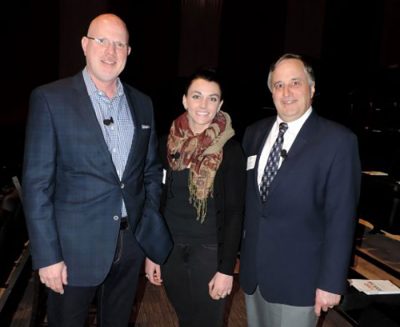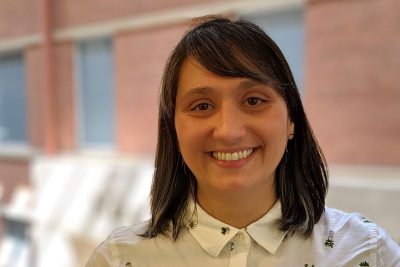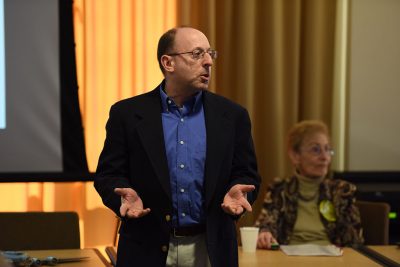Lucy
Author Archive
Seven Neag School Alums Honored at 21st Annual Awards Celebration
The Rome Commons Ballroom at UConn’s Storrs campus was filled on Saturday evening with Neag School of Education Alumni Board members; Neag School faculty, staff, and administrators; friends of the University; and guests honoring seven distinguished Neag School alumni at the School’s annual Alumni Awards Celebration.
March 20, 2019 | Fiona Brady
Op-ed: Coach’s Firing Won’t Solve College Football’s Deepest Problems
Maryland college football coach DJ Durkin was ultimately fired after the death of a player during practice – and findings that his players were bullied and abused by coaches and staff over the course his three-year tenure. However, his 11th hour ouster on Oct. 31 is evidence of how much the culture of college football still needs to change. This culture encourages players to ignore signs of physical or mental exhaustion and is present across the college football landscape, not just at Maryland.
November 1, 2018 | Joseph Cooper
Neag School Faculty, Staff Mentor Emerging Leader in Sport
Each year, the U.S. Department of State, the Center for Sport, Peace & Society at the University of Tennessee Knoxville, and espnW co-sponsor the Global Sports Mentoring Program’s (GSMP) Empower Women Through Sports Initiative. The Neag School Department of Educational Leadership’s Laura Burton, Danielle DeRosa, and Jennifer McGarry were selected to serve as mentors to an emerging leader from Vietnam, Tra Giang “Jane” Nguyen.
October 17, 2018 | Meghan Farrell
Where Are They Now? Catching Up With HESA Alum Meghan Hanrahan ’04 MA
Two years into her position as director of UConn’s master of science in business analytics and project management (MSBAPM) program, HESA alumna Meghan Hanrahan ’04 MA is thriving. She loves her work, the MSBAPM program’s enrollment is on the rise, and Hanrahan herself was recently featured in Hartford Business Journal’s 2018 “40 Under 40” issue. “I feel like I’m exactly where I should be,” she says. So how, exactly, did she get here?
October 2, 2018 | Madeleine Chill
Issue Brief: The Impact of Undocumented Status on Children’s Learning
Undocumented children and families face unique challenges that can affect their schooling experience and require the attention and care of educators. Chelsea Connery’13 (ED), ’14 MA, a former public school teacher and now a Neag School doctoral student in the Learning, Leadership, and Education Policy program, prepared the following issue brief — in affiliation with the Center for Education Policy Analysis (CEPA) — about the impact of undocumented status on children’s learning.
July 23, 2018 | Chelsea Connery
Preparing a School District for a 1:1 Technology Initiative: Issue Brief
Alexandra Lamb, a doctoral candidate in the Learning, Leadership, and Education Policy program at the Neag School, prepared the following issue brief — in affiliation with the Center for Education Policy Analysis (CEPA) — about school districts that are introducing technology into classrooms through what are known as 1:1 programs.
June 6, 2018 | Alexandra J. Lamb
Career and Technical Education Issue Brief: Current Trends and Results
Samuel J. Kamin, a doctoral student in the Learning, Leadership, and Education Policy program at the Neag School, prepared this issue brief on career and technical education in affiliation with the Center for Education Policy Analysis (CEPA).
May 29, 2018 | Samuel J. Kamin
Why We Need to Rethink How to Teach the Holocaust
A recent national survey reported that millennials are struggling with their knowledge of the Holocaust. The survey results show that 22 percent of millennials have not heard of, or are not sure if they have heard of the Holocaust, and that 66 percent could not identify Auschwitz.
May 24, 2018 | Alan Marcus
Wearable Technologies Help Olympians Achieve Top Performance
Jaci VanHeest, Neag School associate professor of education, writes this piece originally published for The Conversation.
February 14, 2018 | Jaci VanHeest
Op-ed: How Chronic Absenteeism Threatens America’s Schools
Each year in the United States, approximately 5 to 7.5 million students in the nation’s K-12 schools miss a month or more of school. That means 150 to 225 million instructional days are lost every school year. The problem is more pronounced in low-income urban communities throughout the country. In elementary school, for example, students who live in poverty were found to be as much as five times more likely to be chronically absent than their advantaged peers.
February 8, 2018 | Shaun M. Dougherty and Michael Gottfried







